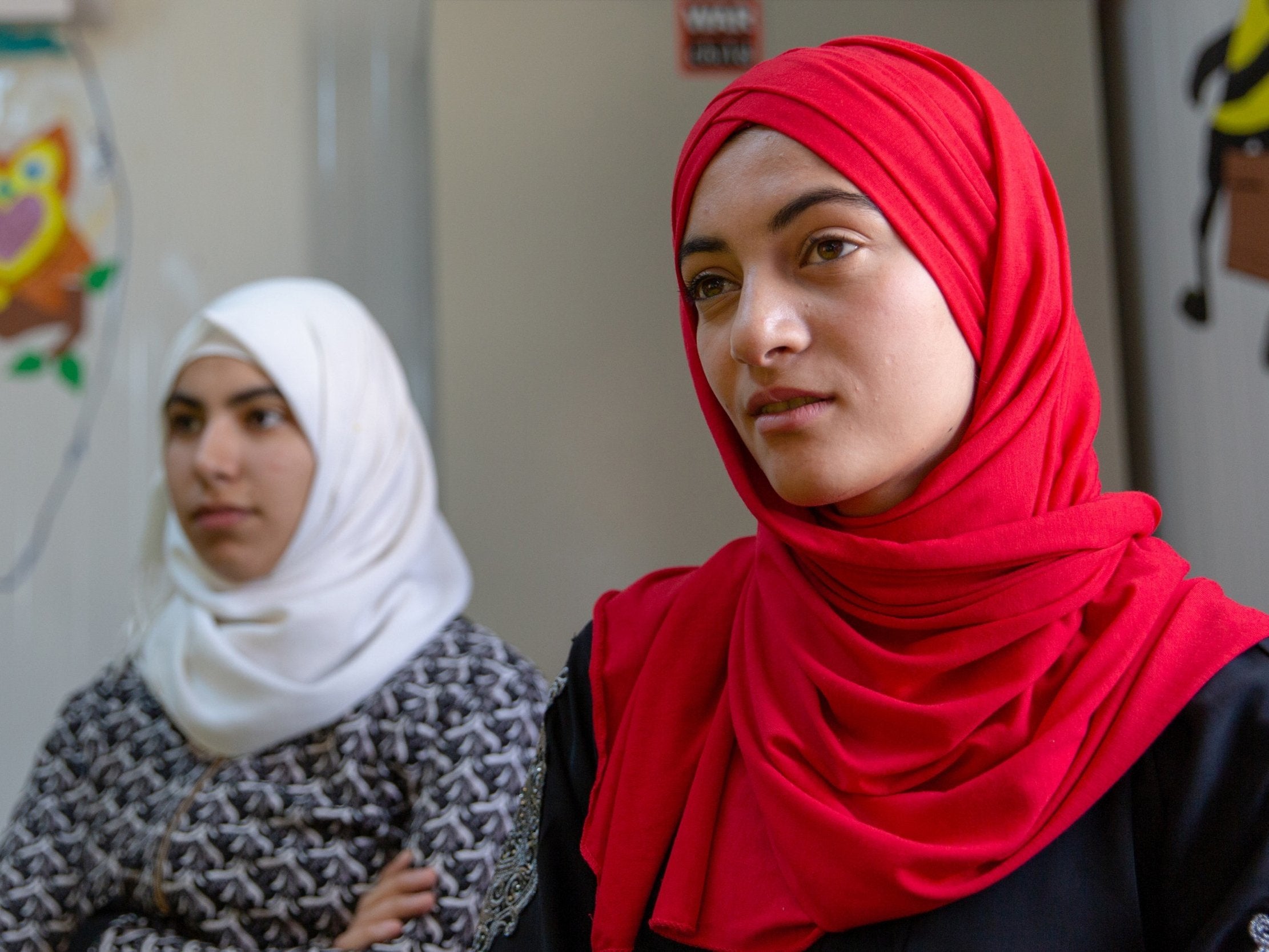The Independent's journalism is supported by our readers. When you purchase through links on our site, we may earn commission.
‘We did not know people in London had hijabs like us, it is nice’: Syrian refugees receive messages from twinned schools
'In my country the children face child labour, what are the challenges British children face?'

Your support helps us to tell the story
From reproductive rights to climate change to Big Tech, The Independent is on the ground when the story is developing. Whether it's investigating the financials of Elon Musk's pro-Trump PAC or producing our latest documentary, 'The A Word', which shines a light on the American women fighting for reproductive rights, we know how important it is to parse out the facts from the messaging.
At such a critical moment in US history, we need reporters on the ground. Your donation allows us to keep sending journalists to speak to both sides of the story.
The Independent is trusted by Americans across the entire political spectrum. And unlike many other quality news outlets, we choose not to lock Americans out of our reporting and analysis with paywalls. We believe quality journalism should be available to everyone, paid for by those who can afford it.
Your support makes all the difference.Child refugees stranded in a sprawling camp on the Syrian border have received the first messages from pupils at their “twin schools” in London – and say the exchanges have already altered their world view.
Through our Learn to Live campaign, The Independent has linked up four London schools with children in Jordan, Iraq and the Central African Republic.
The project aims to increase empathy and understanding between pupils of all backgrounds – and let children whose lives have been devastated by war know they are not forgotten.
Year 9 students at Carshalton Boys Sports College and Hornsey School for Girls sent video messages to the children in one of the largest refugee camps in the world – Zaatari in northern Jordan.
Almost 80,000 people, many of them under the age of 16, scrape together in an existence in the desert camp after fleeing their homes to escape the Syrian civil war.
The teenage refugees gathered around a lone laptop in a makeshift classroom to watch the messages, part of a programme operated by London-based charity War Child.
The Carshalton boys and Hornsey girls asked their new friends a series of questions, including whether they play football in the camp, what the food is like and how they can help.
The refugees said they were “moved” by the messages.
Dina, 16, smiled and said: “We did not know people in London had hijabs like us, it is nice.”
Areej, also 16, added: “We had different expectations, I did not know they wear skirts like us”, while Ali, 16, said he was “moved” by the boys’ “sensitive” questions.
They also expressed surprise at seeing Muslim students and single-sex classrooms like their own in the London schools.
But stark differences were also noted.
Of the Hornsey Girls’ School open plan library and garden with wooden swings, Hanin, 16, said: “It looks like a restaurant more than a school.”
“Their school has a small garden. That place would open your appetite for studying, more than ours,” Dina added.
The girls at Hornsey also explained their love of Taylor Swift. But as the Syrian pupils’ teacher shut the laptop, the refugees were left baffled, asking: “Who is Taylor Swift?
After having heard the messages from their counterparts in London, the children in Jordan sat down to write responses, detailing their day-to-day lives.
They also asked their own questions about life in the UK, including what food the Londoners eat and whether the weather in England lives down to its reputation.
Zain, who wants to be a geography teacher, pointed out he already loves British movies and chocolate.
Dina asked the Londoners: “Do you have Arab friends? Do you know anything about Syria?
“In my country the children face child labour, what are the challenges British children face?”
Do you have Arab friends? Do you know anything about Syria?
The four London schools signed up through our Learn to Live campaign include primary and secondary schools, and a pupil referral unit.
Over the next 10 weeks, the students will spend around three hours per week on the campaign, and we will document friendships as they grow. Pupils will share lessons, communicate on Skype and complete an art project.
But it is not only these pupils who can learn from direct cultural exchange. All primary and secondary schools in the UK can benefit by signing up to a government-funded scheme offering similar opportunities.
The Independent is now encouraging more schools to join Connecting Classrooms, a global education programme run by the British Council in partnership with the Department for International Development (DfID).
It allows UK school leaders to find partner schools overseas and begin collaborating with teachers and pupils in countries such as Jordan, Burma, Sierra Leone and Yemen.
Join our commenting forum
Join thought-provoking conversations, follow other Independent readers and see their replies
Comments